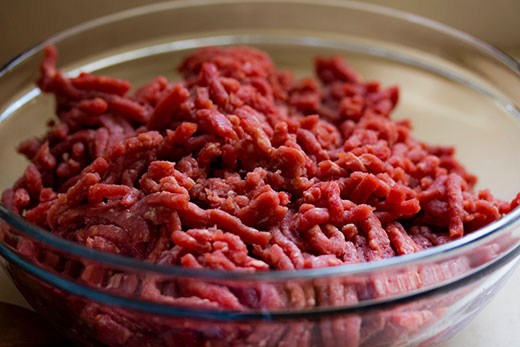
K-State doctoral student Erin Beyer found that consumer's eating experience is not impacted by whether beef products are frozen or fresh.
Frozen or fresh beef? For taste, consumers say it doesn’t matter
K-State researchers to present results during Mar. 3 Cattlemen’s Day
Feb. 27, 2023
By Pat Melgares, K-State Research and Extension news
MANHATTAN, Kan. – A Kansas State University doctoral student is reporting results indicating that freezing and thawing beef doesn’t impact consumer’s eating experience, compared to eating the same product fresh.
Erin Beyer will present her results during K-State’s 110th annual Cattlemen’s Day, set for Mar. 3 in Weber Hall. Her session – Beef Sensory Update – highlights the afternoon program.
“There are three studies that I’m going to highlight, looking at the impact of freezing and thawing on meat quality, and the impact of ground beef color on the purchasing habits of consumers,” Beyer said.
Her work included freezing meat cuts, then thawing them in the refrigerator or in cold water, then comparing consumer’s eating preferences with a similar, fresh cut.
“While fresh, never-frozen beef of varying aging times resulted in a juicier product, the previously frozen product was more tender,” Beyer said. “Ultimately, freezing beef does not positively or negatively impact the (consumer’s) overall liking of a steak.”
A second study still being conducted compares methods used to thaw frozen beef. “While freezing meat might not impact the eating experience, the thawing method does,” Beyer said.
That study so far indicates that thawing the meat in a microwave or as part of the cooking method results in a lower quality product compared to thawing it in the refrigerator or in cold water. Beef also should not be thawed in warm or hot water, she said.
“Ensuring meat is fully thawed before cooking is not only imperative for food safety, but also for the eating experience,” Beyer said.
She added that the research gives consumers better information when considering grocery store purchases, or when storing meat at home.
“Right now, previously frozen meat is sold at a discount, so knowing that frozen meat is not lower quality could save the consumer some money at retail,” Beyer said.
Beyer, who will complete her doctoral program at K-State in May, has also conducted a study on how discoloration of retail ground beef affects consumer’s purchasing decisions.
“As meat scientists, we know ground beef color is not usually an indicator of wholesomeness,” she said.
But consumers apparently don’t see it that way, according to her research: “It turns out consumers are very picky with ground beef color and are not swayed to purchase discolored ground beef even at a reduced price,” Beyer said.
Discolored ground beef, she adds, “is the number one most important factor for purchasing motivators, so these results were not surprising.”
The cost to attend Cattlemen’s Day 2023 is $35 at the door. For more information and online registration, visit KSUBeef.org
Also on Mar. 3, the 46thAnnual Legacy Bull and Female Sale will begin at 4 p.m. at the Stanley Stout Center (2200 Denison Avenue in Manhattan). Visit asi.ksu.edu/legacysale to learn more about this year’s offering and to request a sale catalog.
On Mar. 2, the Tom Perrier Family will be honored as the Stockman of the Year at the Annual Stockmen’s Dinner, beginning at 6 p.m. at the Stanley Stout Center. A separate registration is required for the dinner. Information can be found online at asi.ksu.edu/stockmensdinner.

